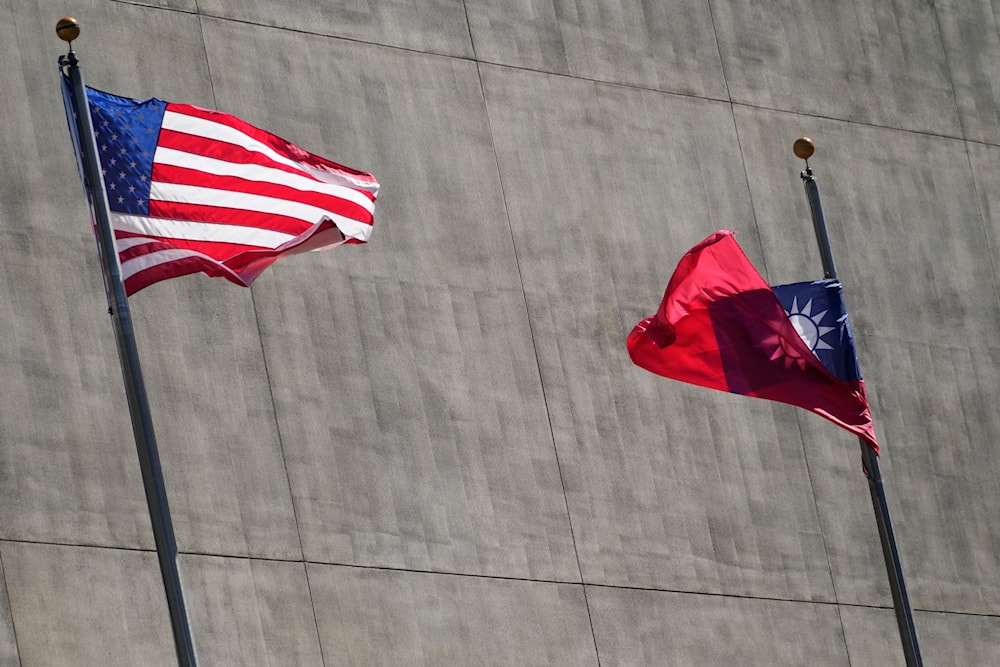China opposes US including Taiwan in aid bill passed by Congress
China urges the US to curb its support for Taiwan following the approval of a bill in Congress.
-

US and Taiwan flags are displayed outside a hotel as during the Taiwanese president's stay in Los Angeles on April 4, 2023. (AP)
China expressed opposition to including "Taiwan-related content" in a four-bill package passed by the US Congress that included military aid to Taipei, its Taiwan Affairs Office said on Wednesday.
The country urged the US to fulfill its commitment to not interfere with Taiwan and stop arming it in any way, its spokesperson said.
On Tuesday, the US Congress approved a legislative package that includes security assistance for Ukraine, "Israel", and Taiwan.
$95 billion legislative package
Taiwan's military announced on Sunday its plans to engage in discussions with the US regarding the allocation of funding for Taipei, which is part of the $95 billion legislative package.
The US Senate granted final authorization to the $95 billion wartime "assistance" package in February. During a vote, the Senate overwhelmingly passed the measure with a vote of 70 to 29, surpassing the required 60-vote threshold required for most legislation to pass in the chamber.
A majority of Democrats, along with 22 Republicans, supported the bill, highlighting significant divides within the GOP regarding America's obligations toward its allies and its global role.
Over eight billion US dollars was earmarked for bolstering US partners in the Indo-Pacific, particularly Taiwan, as a means of deterring an alleged potential Chinese aggression.
$300 million military aid package
Last month, days after the United States approved a $300 million military aid package for Taiwan, a bilateral congressional delegation vowed on March 28 to further support the island.
The delegation, led by the chair of the House Intelligence and Special Operations Subcommittee, Rep. Jack Bergman, affirmed that the United States will continue to support Taiwan and ensure its security and that of the region.
“This includes a strong Taiwan maritime strategy and how we can work together on shared goals to counter China on their increasingly aggressive actions in the region,” he added, during his meeting with Taiwanese President Tsai Ing-wen.

 2 Min Read
2 Min Read








